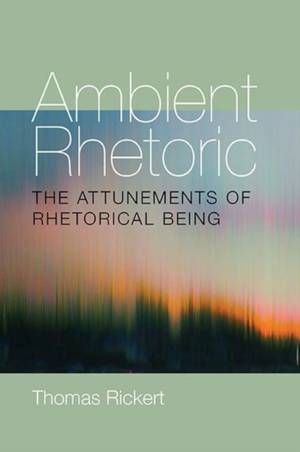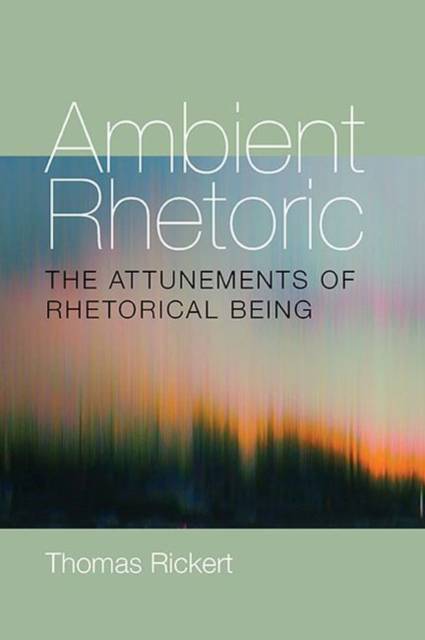
- Afhalen na 1 uur in een winkel met voorraad
- Gratis thuislevering in België vanaf € 30
- Ruim aanbod met 7 miljoen producten
- Afhalen na 1 uur in een winkel met voorraad
- Gratis thuislevering in België vanaf € 30
- Ruim aanbod met 7 miljoen producten
Zoeken
Omschrijving
In Ambient Rhetoric, Thomas Rickert seeks to dissolve the boundaries of the rhetorical tradition and its basic dichotomy of subject and object. With the advent of new technologies, new media, and the dispersion of human agency through external information sources, rhetoric can no longer remain tied to the autonomy of human will and cognition as the sole determinants in the discursive act. Rickert develops the concept of ambience in order to engage all of the elements that comprise the ecologies in which we exist. Culling from Martin Heidegger's hermeneutical phenomenology in Being and Time, Rickert finds the basis for ambience in Heidegger's assertion that humans do not exist in a vacuum; there is a constant and fluid relation to the material, informational, and emotional spaces in which they dwell. Hence, humans are not the exclusive actors in the rhetorical equation; agency can be found in innumerable things, objects, and spaces. As Rickert asserts, it is only after we become attuned to these influences that rhetoric can make a first step toward sufficiency. Rickert also recalls the foundational Greek philosophical concepts of kairos (time), chora (space/place), and periechon (surroundings) and cites their repurposing by modern and postmodern thinkers as \u201cinformational scaffolding\u201d for how we reason, feel, and act. He discusses contemporary theory in cognitive science, rhetoric, and object-oriented philosophy to expand his argument for the essentiality of ambience to the field of rhetoric. Rickert then examines works of ambient music that incorporate natural and artificial sound, spaces, and technologies, finding them to be exemplary of a more fully resonant and experiential media. In his preface, Rickert compares ambience to the fermenting of wine--how its distinctive flavor can be traced to innumerable factors, including sun, soil, water, region, and grape variety. The environment and company with whom it's consumed further enhance the taste experience. And so it should be with rhetoric--to be considered among all of its influences. As Rickert demonstrates, the larger world that we inhabit (and that inhabits us) must be fully embraced if we are to advance as beings and rhetors within it.
Specificaties
Betrokkenen
- Auteur(s):
- Uitgeverij:
Inhoud
- Aantal bladzijden:
- 360
- Taal:
- Engels
- Reeks:
- Reeksnummer:
- nr. 163
Eigenschappen
- Productcode (EAN):
- 9780822962403
- Verschijningsdatum:
- 6/05/2013
- Uitvoering:
- Paperback
- Formaat:
- Trade paperback (VS)
- Afmetingen:
- 152 mm x 229 mm
- Gewicht:
- 544 g

Alleen bij Standaard Boekhandel
+ 167 punten op je klantenkaart van Standaard Boekhandel
Beoordelingen
We publiceren alleen reviews die voldoen aan de voorwaarden voor reviews. Bekijk onze voorwaarden voor reviews.













